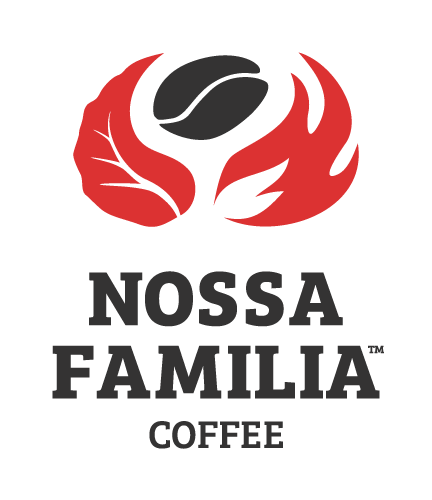

Nossa Familia Coffee

Oregon, United States
February 2016
Agricultural Processing
Manufacturing
Brazil,
United States
Nossa Familia Coffee prides itself on being one of the friendliest and most approachable roasters in Portland (and the first certified B Corp roaster in Oregon!), with a strong focus on building relationships among farmers, employees, and customers. Nossa Familia - “Our Family” in Portuguese - was born in 2004, when founder Augusto Carneiro realized his engineering job wasn’t putting a spring in his step. Filled with a deep sense of pride for the beautiful coffee his family had been growing for over a century in Brazil, Augusto decided to quit his job and bring his family’s coffee to Portland. In those early years, all of Nossa Familia’s coffee was imported directly from Augusto’s family’s farms in Brazil; over time Nossa Familia has developed direct relationships with coffee growers around the world. Now with a roasting facility and espresso bar in Northwest Portland, Nossa Familia Coffee supplies wholesale accounts and customers across the Rose City and beyond with conscientiously-sourced and meticulously-roasted coffee from various growing regions. Coffee quality, mutually beneficial relationships with producers, engaging and supporting the local community, minimizing environmental footprint, and having fun remain fundamental to Nossa Familia’s reason for being.
Overall B Impact Score
Governance 16.2
Governance evaluates a company's overall mission, engagement around its social/environmental impact, ethics, and transparency. This section also evaluates the ability of a company to protect their mission and formally consider stakeholders in decision making through their corporate structure (e.g. benefit corporation) or corporate governing documents.
What is this? A company with an Impact Business Model is intentionally designed to create a specific positive outcome for one of its stakeholders - such as workers, community, environment, or customers.
Workers 21.2
Workers evaluates a company’s contributions to its employees’ financial security, health & safety, wellness, career development, and engagement & satisfaction. In addition, this section recognizes business models designed to benefit workers, such as companies that are at least 40% owned by non-executive employees and those that have workforce development programs to support individuals with barriers to employment.
Community 30.7
Community evaluates a company’s engagement with and impact on the communities in which it operates, hires from, and sources from. Topics include diversity, equity & inclusion, economic impact, civic engagement, charitable giving, and supply chain management. In addition, this section recognizes business models that are designed to address specific community-oriented problems, such as poverty alleviation through fair trade sourcing or distribution via microenterprises, producer cooperative models, locally focused economic development, and formal charitable giving commitments.
What is this? A company with an Impact Business Model is intentionally designed to create a specific positive outcome for one of its stakeholders - such as workers, community, environment, or customers.
Environment 18.0
Environment evaluates a company’s overall environmental management practices as well as its impact on the air, climate, water, land, and biodiversity. This includes the direct impact of a company’s operations and, when applicable its supply chain and distribution channels. This section also recognizes companies with environmentally innovative production processes and those that sell products or services that have a positive environmental impact. Some examples might include products and services that create renewable energy, reduce consumption or waste, conserve land or wildlife, provide less toxic alternatives to the market, or educate people about environmental problems.
What is this? A company with an Impact Business Model is intentionally designed to create a specific positive outcome for one of its stakeholders - such as workers, community, environment, or customers.
Customers 3.8
Customers evaluates a company’s stewardship of its customers through the quality of its products and services, ethical marketing, data privacy and security, and feedback channels. In addition, this section recognizes products or services that are designed to address a particular social problem for or through its customers, such as health or educational products, arts & media products, serving underserved customers/clients, and services that improve the social impact of other businesses or organizations.